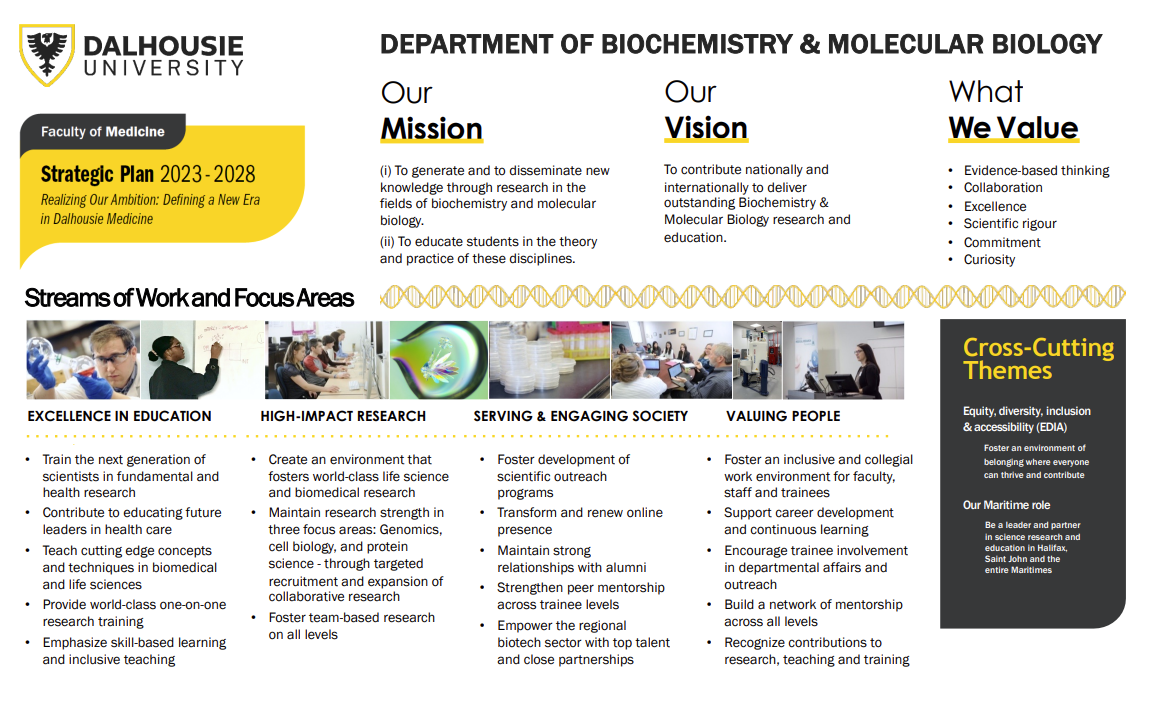Mission Statement
Biochemistry and molecular biology are related, interactive disciplines, whose joint goal is a complete understanding of life at the cellular and subcellular levels. Biochemists primarily use tools derived from chemistry to dissect molecular structure and function, while molecular biologists more often ground their studies of life processes in genetics. Both also need cell biology, mathematics, physics and, increasingly, genomics, bioinformatics and computational biology. The 21st century will be the century of biology: not only will we develop radical new ways of improving and maintaining human health, we will also have to come to terms with our history and responsibilities as the dominant species on the planet. Biochemistry and molecular biology will be the foundation sciences in these transformations.
Department's one-page strategic plan

As a component of a research-intensive university with a broad educational mandate, the department has a mission that encompasses two distinct goals:
- To generate and to disseminate new knowledge through research in the fields of biochemistry and molecular biology.
- To educate students in the theory and practice of biochemistry and molecular biology.
In the past, the research activities of the department have been readily categorized into three areas of activity: metabolism, molecular biology and protein chemistry. The borders between these areas have become much less distinct although the interests of our faculty members still span a wide range from protein chemistry to molecular evolution. Three new areas of research emphasis have been defined. Although somewhat overlapping, they indicate the research directions the department will follow in the future.
- Molecular cell biology and molecular genetics
- Comparative genomics, proteomics and molecular evolution
- Structure, function and metabolism of biomolecules
It is faculty members working in these areas who will provide the expertise necessary to maintain modern, high-caliber research programs that attract external funding and high-quality graduate students. They will also have sufficient breadth of interest and experience to meet current and future teaching obligations.
Ratified: 2001
